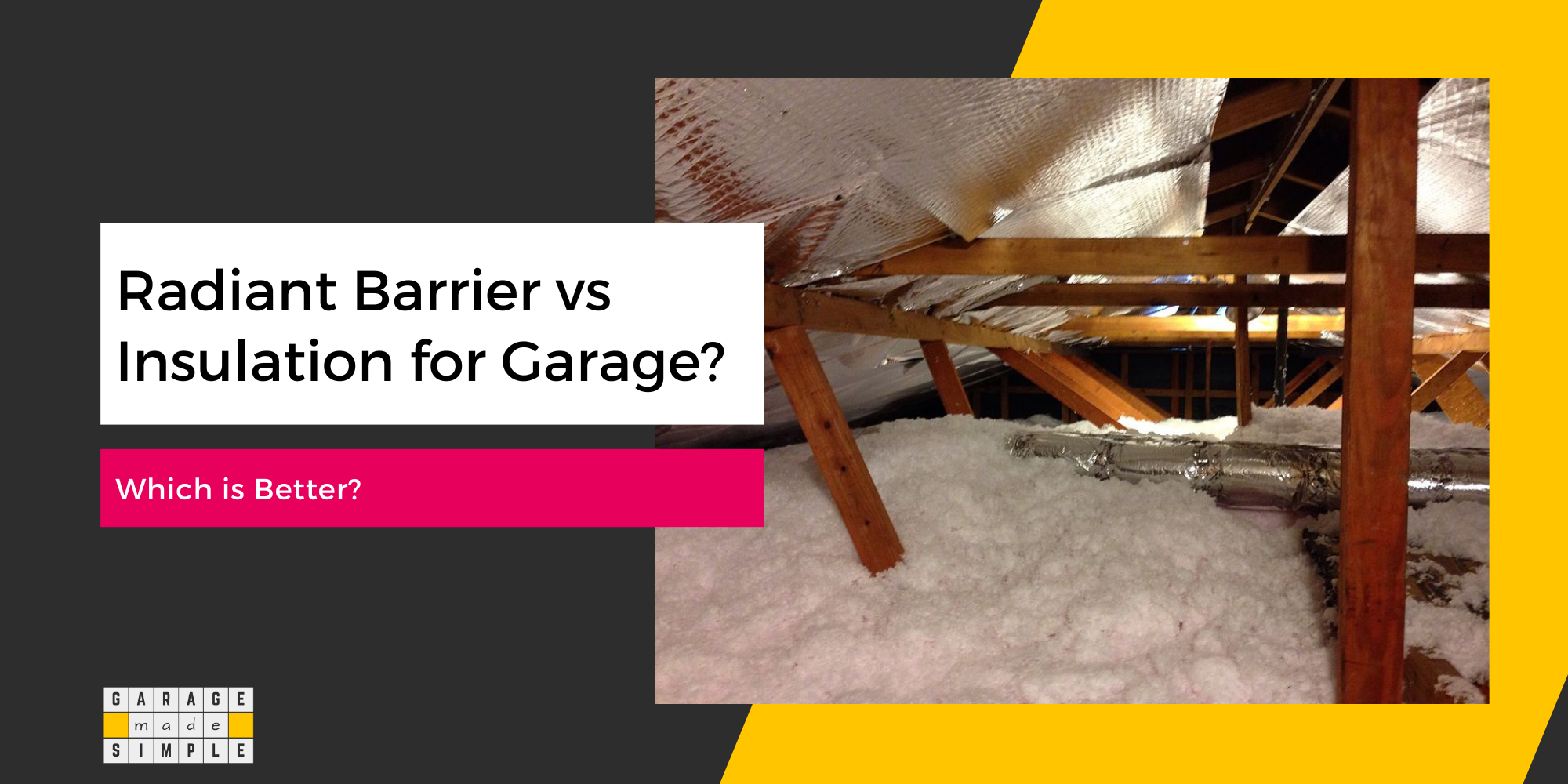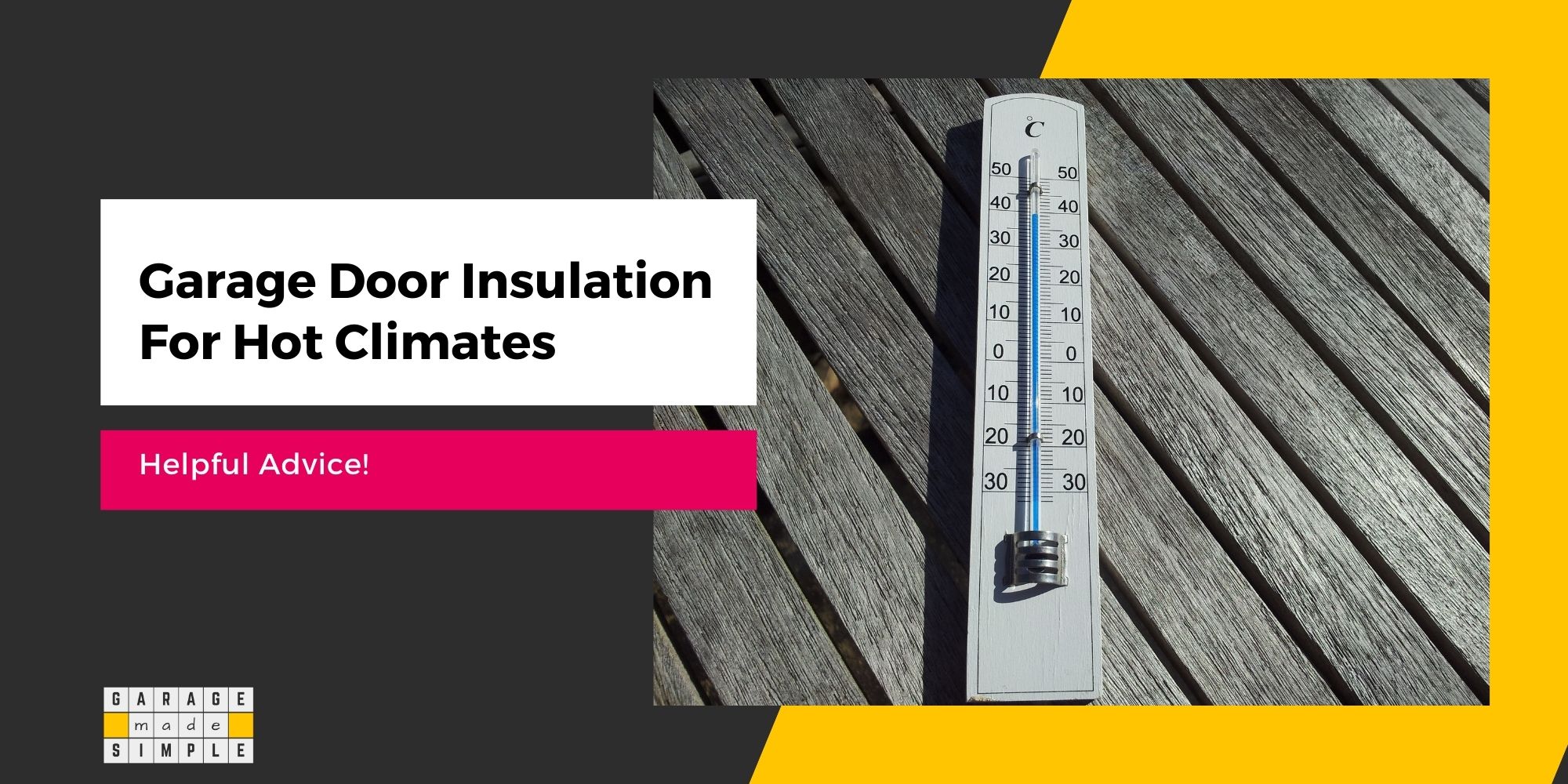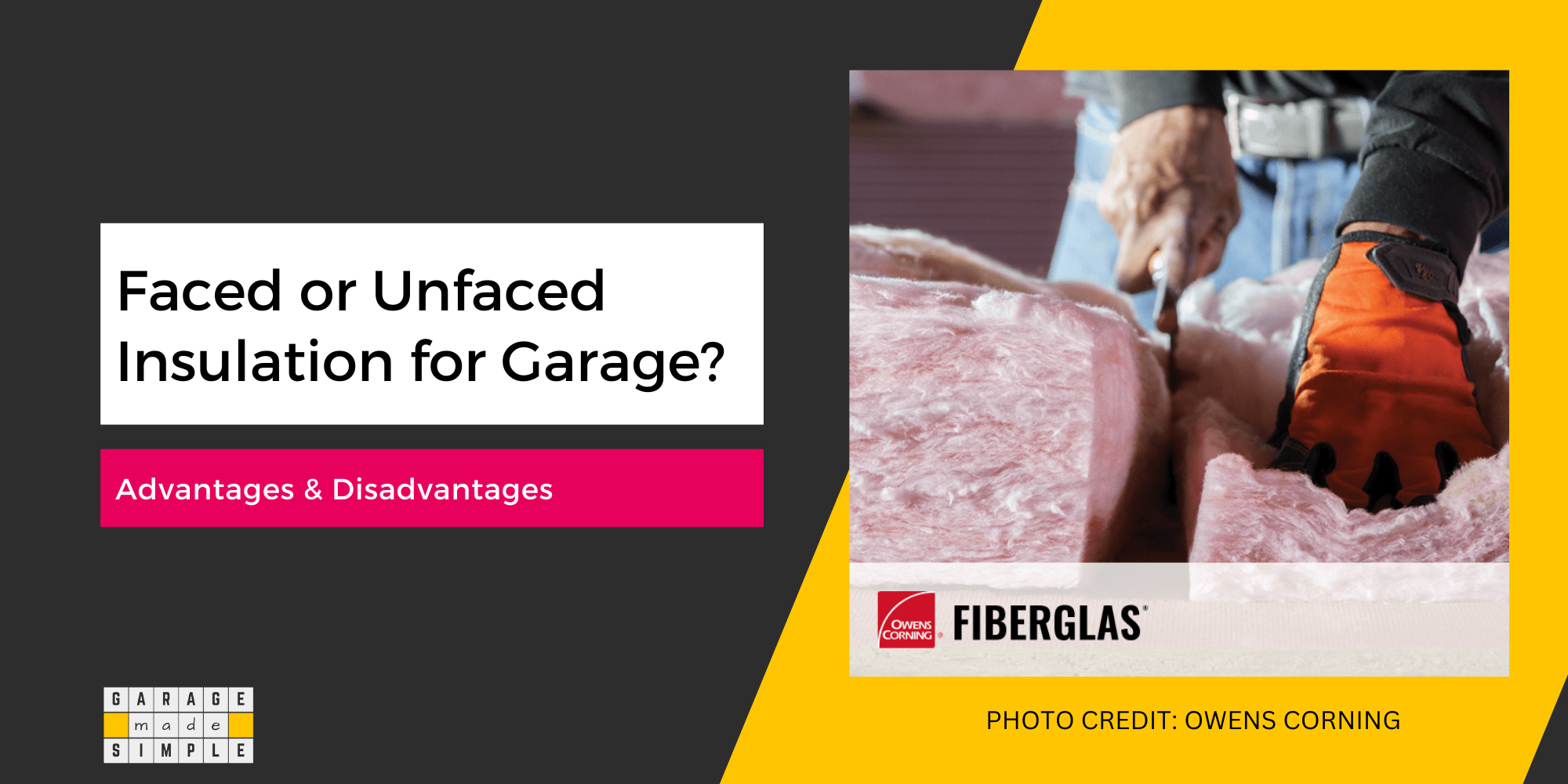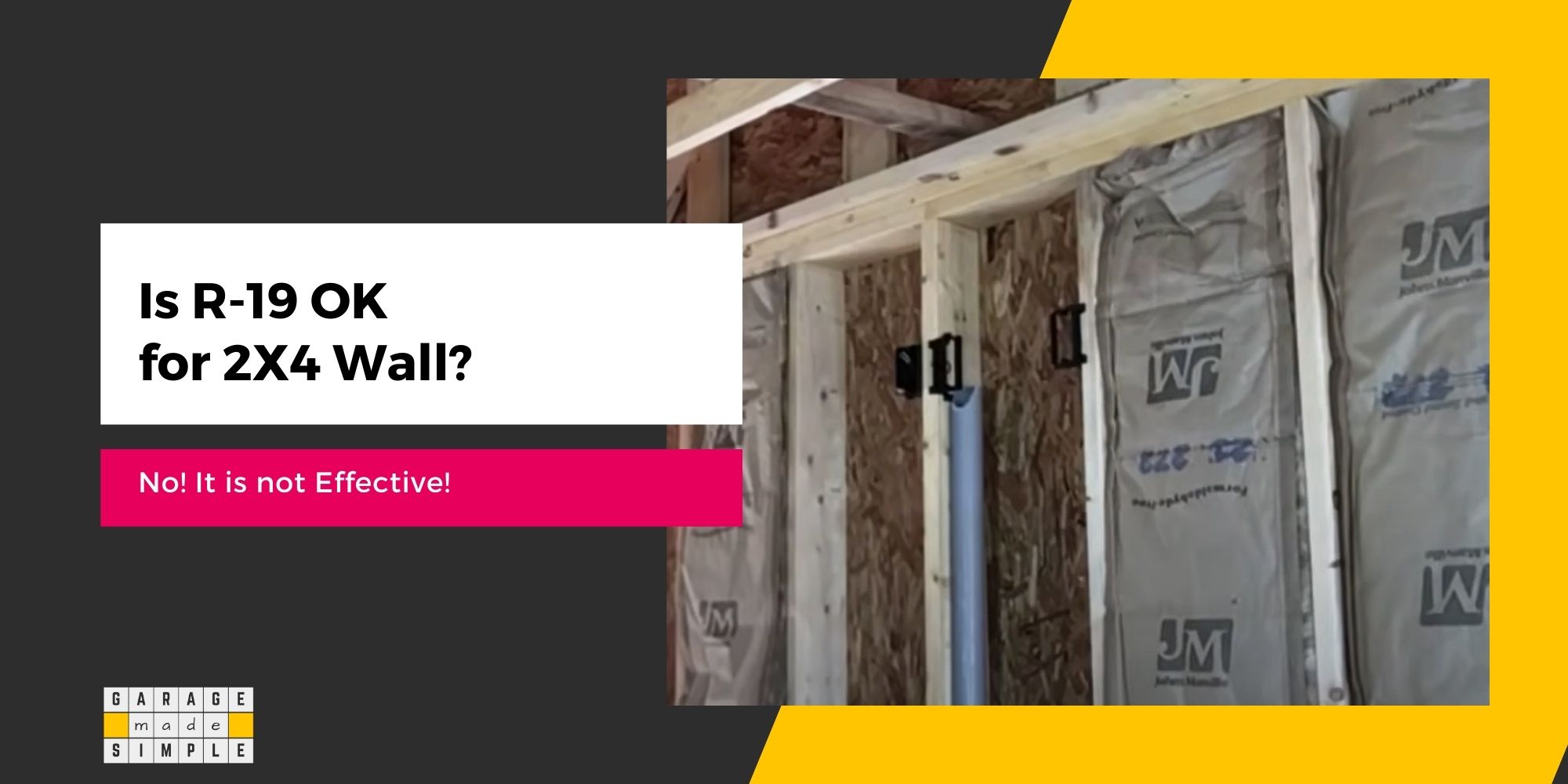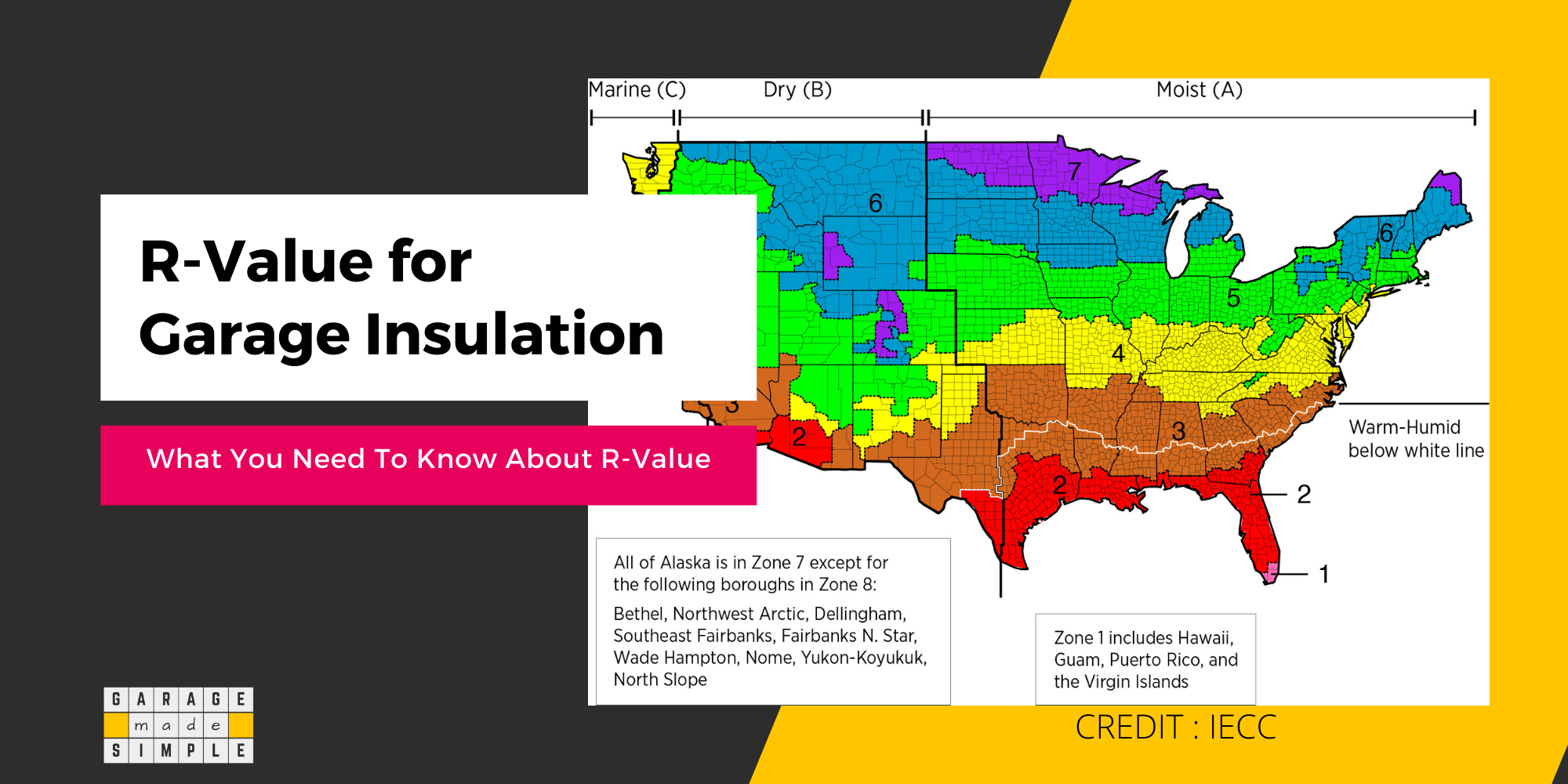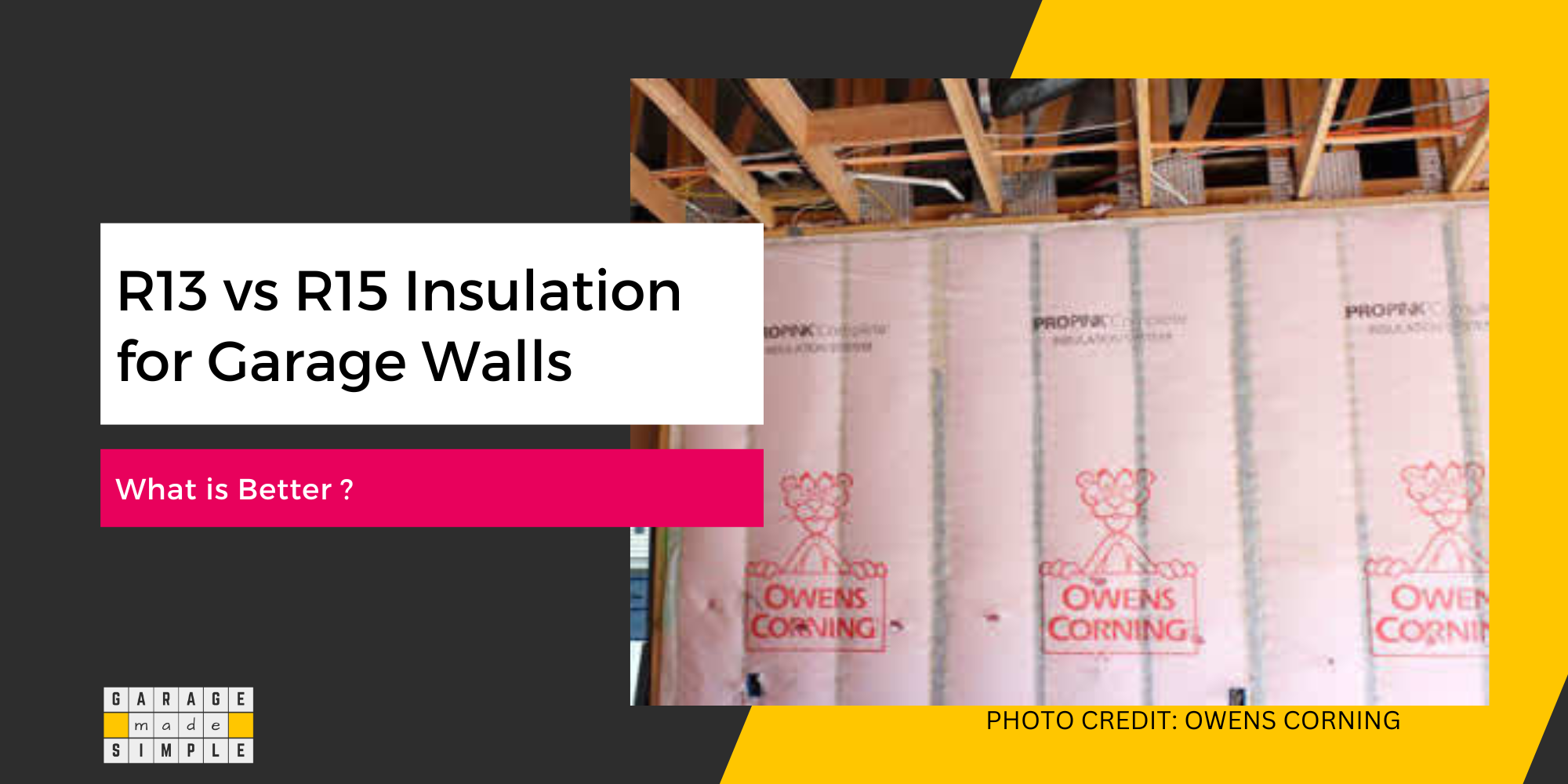R11 or R13 for Garage Walls? Which Insulation R Value for Garage is Best?
garagemadesimple.com is a participant in the Amazon Services LLC Associates Program, an affiliate advertising program designed to provide a means for sites to earn advertising fees by advertising and linking to Amazon.com . The website is also an affiliate of a few other brands.
R11 or R13 for Garage Walls?
Insulation helps your garage brave winter’s chill or summer’s heat with no running cost. Buying insulation can, however, be confusing. R11 or R13 for Garage? What is Better? And Why?
R13 or R15 is the recommended insulation value for garage walls. R11 is not recommended at all.
When choosing the right insulation R-value for garage you need to consider several factors such as:
- The part of the garage that is to be insulated, e.g.: door, wall, ceiling, floor
- The climatic conditions
- The budget
- The type of insulation you prefer
Insulating your garage isn’t just about staying comfortable; it’s a smart move to save on energy bills and create a more usable space.
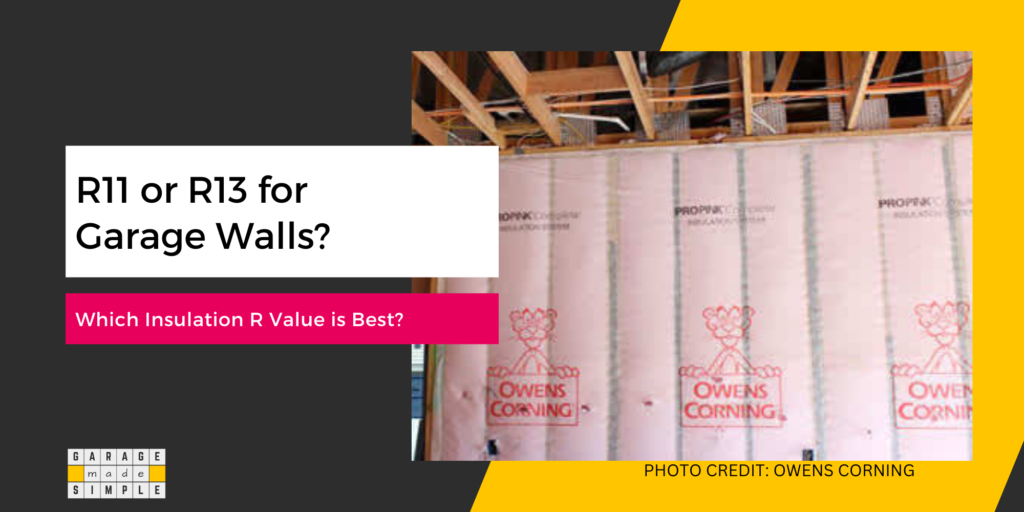
Understanding Insulation R-Values
So what is R-Value? What is the importance of R-Value for garage insulation? R-Value is a measure of how effective the insulation is at resisting heat flow. The higher the R-value, the lower is the rate of heat transmission across the insulating material.
Ultimately R-Value depends on the insulation material as well as the thickness of the insulating material. To put it simply:
An inch thick Styrofoam has a higher R-Value than an inch thick drywall. Further, a two inch thick Styrofoam has a higher R-Value than an inch thick Styrofoam.
It is possible to increase R-Value by combining two or more materials intelligently. Spray foam is one of the ways to insulate a wall, but all spray foams are not made equal.
Open-cell spray foam, sometimes called half-pound foam, has a typical density of 0.5 lb. per cubic foot and a typical R-value of 3.5 or 3.6 per inch. However, closed-cell foam has a typical density of 2 lbs. per cubic foot and an R-value of 6-6.5 per inch.
The increase in R-Value is in part because of higher density and in part because the closed cells contain a gas with high insulating properties.
The R-value of insulation is important because it affects the energy efficiency of a garage. The higher the R-value, the less heat will be lost through the insulation, which can save money on energy bills.
R11 vs R13 Insulation for Garage Walls: A Quick Comparison
Owens Corning, the leader in fiberglass insulation recommends use of PINK Next Gen™ Fiberglas™ Insulation for residential walls that includes garages. Here is a comparison of the dimensions of commonly used R-Values for Wood Frame Construction – Walls.
| R-Value | Thickness | Width | Length |
|---|---|---|---|
| R-11 | 3 1/2″ | 15″ or 23″ | 48″ or 93″ |
| R-13 | 3 1/2″ | 15″ or 23″ | 48″ or 93″ |
| R-15 | 3 1/2″ | 15″ or 23″ | 93″ |
| R-19 | 6 1/2″ | 15″ or 23″ | 48″ or 93″ |
| R-21 | 5 1/2″ | 15″ or 23″ | 93″ |
Here is a brief explanation of the different R-Values:
- R-11: This is a low R-Value, and it is not recommended for most homes. It may be sufficient for homes in warm climates, but it will not provide much insulation in colder climates.
- R-13: This is a standard R-Value, and it is a good choice for most homes. It will provide adequate insulation in most climates.
- R-15: This is a higher R-Value, and it is a good choice for homes in colder climates. It will provide more insulation than R-13, which can help to save energy and improve comfort.
- R-19: This is a very high R-Value, and it is not often needed in homes. It may be used in homes in very cold climates, or in homes where energy efficiency is very important.
- R-21: This is a high R-Value, and it is a good choice for homes in cold climates. It will provide more insulation than R-19, which can help to save energy and improve comfort.
Which Insulation R Value for Garage Wall is Best?
As mentioned before, the right choice of insulation R-Value for a garage depends on the climatic conditions of where you live. The 2021 International Energy Conservation Code (IECC) has assigned a Zone number to each county.

To find out the recommended Insulation R Value for garage walls in your area, first determine the climate zone your home falls in using the link to IECC above. Then use the Table below to select the right Insulation R Value.
Source: Home Depot
Garage walls are almost always framed using 2X4 wall studs. As such, the best Insulation R Value for garage walls is R13 or R15, irrespective of where you live in the US.
An Example
Let us say your home is in Bergen county in New Jersey state. Using the IECC LINK you will find that your climatic zone is 4A. This means that you will need insulation R Value for garage as under:
- Attics – R38 to R60
- Garage Walls (2X4 Studs) – R13 to R15
- Home Wall (2X6 Studs) – R19 to R21
- Floors – R25 to R30
- Crawl Spaces – R25 to R30
I recommend that you use insulation from Owens Corning. It is simply the best.
Thank you very much for reading the post. I do hope you found it informative and useful.

